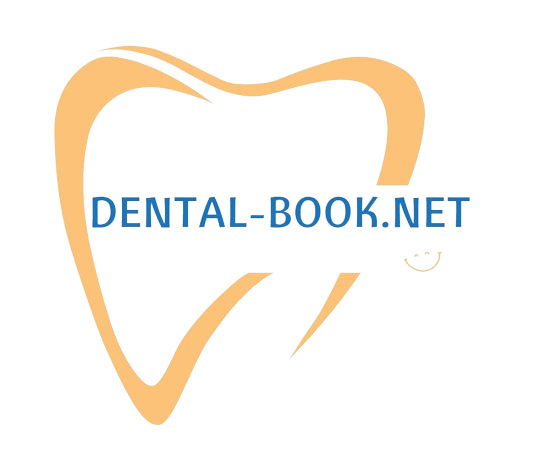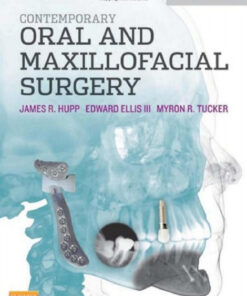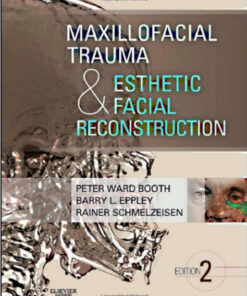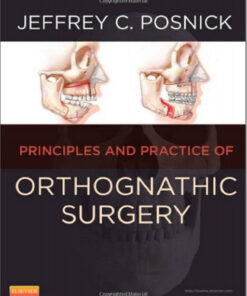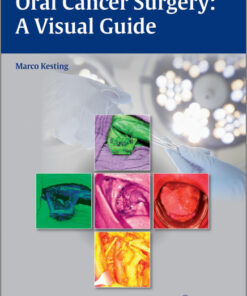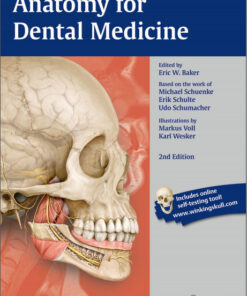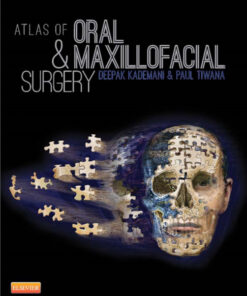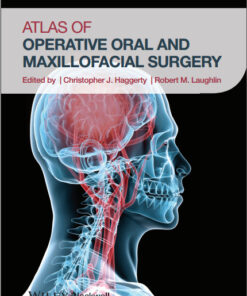You need to assign Widgets to "Shop Sidebar" in Appearance > Widgets to show anything here
ORAL & MAXILLOFACIAL SURGERY
Ebook Contemporary Oral and Maxillofacial Surgery, 6e 6th Edition
ORAL & MAXILLOFACIAL SURGERY
Ebook Maxillofacial Trauma and Esthetic Facial Reconstruction, 2e 2nd Edition
ORAL & MAXILLOFACIAL SURGERY
Ebook Orthognathic Surgery – 2 Volume Set: Principles and Practice, 1e
ORAL & MAXILLOFACIAL SURGERY
ORAL & MAXILLOFACIAL SURGERY
Ebook Anatomy for Dental Medicine (Thieme Atlas of Anatomy) 2 Edition
ORAL & MAXILLOFACIAL SURGERY
Ebook Atlas of Oral and Maxillofacial Surgery, 1e 1st Edition
ORAL & MAXILLOFACIAL SURGERY
Ebook Atlas of Operative Oral and Maxillofacial Surgery 1st Edition
Oral and maxillofacial surgery is a specialized field of dentistry that focuses on the diagnosis, treatment, and prevention of diseases and disorders of the mouth, jaw, face, and neck. It can be used to treat a variety of conditions, from facial trauma to sleep apnea. Understanding the benefits of this type of surgery can help you make an informed decision about your oral health care needs. In this article, we'll discuss what oral and maxillofacial surgery is, the types of procedures it can involve, and the potential benefits of undergoing this type of surgery.
Overview of Oral & Maxillofacial Surgery: What It Is and How It Can Help
Oral and maxillofacial surgery is a specialty of dentistry that focuses on the diagnosis, surgical and adjunctive treatment of diseases, injuries, and defects involving both the functional and aesthetic aspects of the hard and soft tissues of the head, mouth, teeth, gums, jaws, and neck. It is a unique specialty that combines medical and dental knowledge to diagnose and treat a wide range of conditions.
Oral and maxillofacial surgeons are trained in the diagnosis and management of a variety of conditions affecting the mouth, jaw, face, and neck. These include facial trauma, cleft lip and palate, temporomandibular joint (TMJ) disorders, impacted teeth, oral cancer, salivary gland disease, sleep apnea, and more. Oral and maxillofacial surgeons also perform reconstructive surgery to correct congenital or acquired deformities of the face, jaw, and mouth.
Oral and maxillofacial surgeons are highly trained professionals who have completed four years of dental school followed by an additional four to six years of hospital-based residency training in oral and maxillofacial surgery. During their residency, they receive extensive training in anesthesia, medicine, pathology, radiology, and general surgery. This comprehensive training allows them to provide a wide range of services, including:
• Dental implant placement
• Wisdom tooth removal
• Jaw reconstruction
• Facial trauma repair
• Orthognathic surgery
• TMJ surgery
• Sleep apnea treatment
• Facial cosmetic surgery
• Cleft lip and palate repair
• Oral cancer treatment
• Salivary gland surgery
• Reconstructive surgery
• Preprosthetic surgery
• Temporomandibular joint disorder treatment
• Treatment of facial pain
• Treatment of facial nerve paralysis
• Treatment of obstructive sleep apnea
• Treatment of snoring
• Treatment of facial asymmetry
• Treatment of facial fractures
• Treatment of temporomandibular joint disorders
• Treatment of facial deformities
• Treatment of facial tumors
• Treatment of facial infections
Oral and maxillofacial surgery can help improve the function and appearance of the face, mouth, and jaw. It can also help restore the ability to speak, chew, and swallow properly. In addition, it can help reduce pain and discomfort associated with certain conditions. With the help of an experienced oral and maxillofacial surgeon, patients can achieve improved health, comfort, and confidence.
Common Procedures Performed by Oral & Maxillofacial Surgeons
Oral and maxillofacial surgeons are highly trained medical professionals who specialize in the diagnosis, treatment, and prevention of diseases and disorders of the mouth, teeth, jaws, and face. They perform a wide range of procedures, from simple extractions to complex reconstructive surgery.
One of the most common procedures performed by oral and maxillofacial surgeons is dental implant placement. Dental implants are artificial tooth roots that are surgically placed into the jawbone to replace missing teeth. The implant acts as an anchor for a replacement tooth or bridge. Oral and maxillofacial surgeons are specially trained to place dental implants with precision and accuracy.
Another common procedure performed by oral and maxillofacial surgeons is corrective jaw surgery. This type of surgery is used to correct misalignment of the upper and lower jaws, which can cause difficulty speaking, chewing, and breathing. During this procedure, the surgeon will reposition the jaw bones and secure them in place with plates, screws, and wires.
Oral and maxillofacial surgeons also perform facial trauma surgery. This type of surgery is used to repair facial injuries caused by accidents, sports injuries, or other trauma. The surgeon may need to reconstruct the facial bones, repair soft tissue damage, or both.
In addition, oral and maxillofacial surgeons often perform orthognathic surgery. This type of surgery is used to correct abnormalities of the jaw and facial bones, such as an overbite or underbite. During the procedure, the surgeon will reposition the jaw bones and secure them in place with plates, screws, and wires.
Finally, oral and maxillofacial surgeons may also perform cosmetic surgery. This type of surgery is used to improve the appearance of the face, such as reducing wrinkles or reshaping the nose. The surgeon may use a variety of techniques, including dermal fillers, laser resurfacing, and fat grafting.
Overall, oral and maxillofacial surgeons are highly trained medical professionals who specialize in the diagnosis, treatment, and prevention of diseases and disorders of the mouth, teeth, jaws, and face. They perform a wide range of procedures, from simple extractions to complex reconstructive surgery.
Benefits of Oral & Maxillofacial Surgery for Patients
Oral and maxillofacial surgery is a specialty of dentistry that focuses on the diagnosis, surgical and adjunctive treatment of diseases, injuries, and defects involving both the functional and aesthetic aspects of the hard and soft tissues of the head, mouth, teeth, gums, jaws, and neck. This type of surgery can provide patients with a wide range of benefits, from improved oral health to enhanced facial aesthetics.
One of the primary benefits of oral and maxillofacial surgery is improved oral health. This type of surgery can be used to treat a variety of conditions, including impacted wisdom teeth, misaligned jaws, and temporomandibular joint (TMJ) disorders. By addressing these issues, patients can experience relief from pain and discomfort, as well as improved function of their jaw and teeth. In addition, oral and maxillofacial surgery can help to prevent future dental problems by correcting existing issues.
Another benefit of oral and maxillofacial surgery is improved facial aesthetics. This type of surgery can be used to correct a variety of facial deformities, such as cleft lip and palate, facial asymmetry, and jaw misalignment. By correcting these issues, patients can experience improved facial symmetry and balance, as well as an overall more attractive appearance.
In addition to improved oral health and facial aesthetics, oral and maxillofacial surgery can also provide patients with improved self-confidence. By correcting physical deformities or improving the appearance of the face, patients can feel more comfortable in social situations and have increased self-esteem.
Finally, oral and maxillofacial surgery can also be used to treat certain types of cancer. This type of surgery can be used to remove tumors or other abnormal growths in the mouth, jaw, or neck. By removing these growths, patients can reduce their risk of developing more serious complications from the cancer.
Overall, oral and maxillofacial surgery can provide patients with a wide range of benefits, from improved oral health to enhanced facial aesthetics. By addressing existing issues and preventing future problems, this type of surgery can help patients to achieve better overall health and wellbeing.
Preparing for Oral & Maxillofacial Surgery: What to Expect
Oral & Maxillofacial Surgery can be a daunting task, but it is important to understand what to expect before, during, and after the procedure. The first step in preparing for Oral & Maxillofacial Surgery is to consult with your doctor or surgeon. During this consultation, you will discuss the details of the procedure, including the type of surgery, the risks involved, and any potential complications. Your doctor may also provide you with pre-operative instructions, such as fasting prior to the procedure, avoiding certain medications, and stopping smoking.
Once you have consulted with your doctor, it is important to prepare yourself mentally and physically for the surgery. This includes getting plenty of rest, eating a healthy diet, and avoiding alcohol and drugs. It is also important to arrange for someone to drive you home after the procedure.
On the day of the surgery, you should arrive at the hospital or clinic early. You will likely be asked to change into a hospital gown and remove any jewelry or other items that could interfere with the procedure. You may also be given a sedative to help you relax before the surgery.
During the procedure, you will be monitored closely by the medical team. Depending on the type of surgery, you may be given general anesthesia or local anesthesia. After the surgery, you will be taken to a recovery room where you will be monitored until you are ready to go home.
Recovery from Oral & Maxillofacial Surgery can take several weeks. During this time, you may experience swelling, bruising, and pain. Your doctor may prescribe medication to help manage these symptoms. You may also need to follow a special diet and avoid strenuous activities while you heal.
Preparing for Oral & Maxillofacial Surgery can be a stressful process, but understanding what to expect can help make the experience easier. By following your doctor’s instructions and taking care of yourself during the recovery period, you can ensure a successful outcome.
Aftercare Following Oral & Maxillofacial Surgery: Tips for Recovery
Aftercare following oral and maxillofacial surgery is an important part of the recovery process. Proper aftercare can help ensure a successful outcome and reduce the risk of complications. Here are some tips to help you recover from your surgery:
1. Follow your doctor’s instructions. Your doctor will provide you with specific instructions for your recovery, including how to care for the surgical site, what medications to take, and when to return for follow-up visits. It is important to follow these instructions carefully to ensure a successful recovery.
2. Take your medications as prescribed. Your doctor may prescribe antibiotics or pain medications to help manage your symptoms. Be sure to take these medications as directed to reduce the risk of infection and promote healing.
3. Eat a healthy diet. Eating a balanced diet that includes plenty of fruits, vegetables, and lean proteins can help your body heal and recover more quickly. Avoid sugary and processed foods, which can slow down the healing process.
4. Get plenty of rest. Rest is essential for recovery, so make sure to get plenty of sleep each night. Avoid strenuous activities and exercise until your doctor gives you the okay.
5. Practice good oral hygiene. Good oral hygiene is important for preventing infection and promoting healing. Brush your teeth twice a day and floss once a day. You may also need to use a special mouthwash or rinse prescribed by your doctor.
6. Avoid smoking. Smoking can slow down the healing process and increase the risk of complications. If you smoke, it is important to quit before and after your surgery.
7. Attend all follow-up appointments. Follow-up appointments are important for monitoring your progress and ensuring that your recovery is going well. Make sure to attend all of your scheduled appointments.
By following these tips, you can help ensure a successful recovery from your oral and maxillofacial surgery. If you have any questions or concerns about your recovery, be sure to talk to your doctor.
Oral and maxillofacial surgery can provide a wide range of benefits, from improving the appearance of your smile to treating serious medical conditions. It is important to understand the potential risks and benefits associated with this type of surgery before making a decision. By consulting with an experienced oral and maxillofacial surgeon, you can ensure that you are making an informed decision about your health and well-being. With the right care and attention, you can enjoy the many benefits of oral and maxillofacial surgery.
